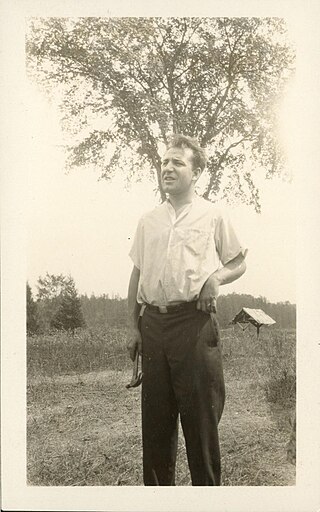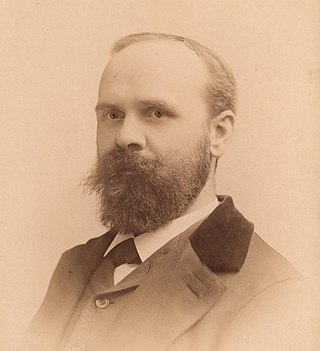Individualist anarchism is the branch of anarchism that emphasizes the individual and their will over external determinants such as groups, society, traditions, and ideological systems. Although usually contrasted with social anarchism, both individualist and social anarchism have influenced each other. Mutualism, an economic theory sometimes considered a synthesis of communism and property, has been considered individualist anarchism and other times part of social anarchism. Many anarcho-communists regard themselves as radical individualists, seeing anarcho-communism as the best social system for the realization of individual freedom. Some anarcho-capitalists claim anarcho-capitalism is part of the individualist anarchist tradition, while others disagree and claim individualist anarchism is only part of the socialist movement and part of the libertarian socialist tradition. Economically, while European individualist anarchists are pluralists who advocate anarchism without adjectives and synthesis anarchism, ranging from anarcho-communist to mutualist economic types, most American individualist anarchists of the 19th century advocated mutualism, a libertarian socialist form of market socialism, or a free-market socialist form of classical economics. Individualist anarchists are opposed to property that violates the entitlement theory of justice, that is, gives privilege due to unjust acquisition or exchange, and thus is exploitative, seeking to "destroy the tyranny of capital,—that is, of property" by mutual credit.
Individualism is the moral stance, political philosophy, ideology and social outlook that emphasizes the intrinsic worth of the individual. Individualists promote realizing one's goals and desires, valuing independence and self-reliance, and advocating that the interests of the individual should gain precedence over the state or a social group, while opposing external interference upon one's own interests by society or institutions such as the government. Individualism makes the individual its focus, and so starts "with the fundamental premise that the human individual is of primary importance in the struggle for liberation".

Lysander Spooner was an American abolitionist, entrepreneur, lawyer, essayist, natural rights legal theorist, pamphletist, political philosopher, Unitarian and writer often associated with the Boston anarchist tradition.
Anarchist economics is the set of theories and practices of economic activity within the political philosophy of anarchism. Anarchists are anti-authoritarian and anti-capitalist, with anarchism usually referred to as a form of libertarian socialism, i.e. a stateless system of socialism. Anarchists support personal property and oppose capital concentration, interest, monopoly, private ownership of productive property such as the means of production, profit, rent, usury and wage slavery which are viewed as inherent to capitalism.
The nature of capitalism is criticized by left-wing anarchists, who reject hierarchy and advocate stateless societies based on non-hierarchical voluntary associations. Anarchism is generally defined as the libertarian philosophy which holds the state to be undesirable, unnecessary and harmful as well as opposing authoritarianism, illegitimate authority and hierarchical organization in the conduct of human relations. Capitalism is generally considered by scholars to be an economic system that includes private ownership of the means of production, creation of goods or services for profit or income, the accumulation of capital, competitive markets, voluntary exchange and wage labor, which have generally been opposed by most anarchists historically. Since capitalism is variously defined by sources and there is no general consensus among scholars on the definition nor on how the term should be used as a historical category, the designation is applied to a variety of historical cases, varying in time, geography, politics and culture.
Mutualism is an anarchist school of thought and economic theory that advocates for workers' control of the means of production, a market economy made up of individual artisans and workers' cooperatives, and occupation and use property rights. As proponents of the labour theory of value and labour theory of property, mutualists oppose all forms of economic rent, profit and non-nominal interest, which they see as relying on the exploitation of labour. Mutualists seek to construct an economy without capital accumulation or concentration of land ownership. They also encourage the establishment of workers' self-management, which they propose could be supported through the issuance of mutual credit by mutual banks, with the aim of creating a federal society.

Josiah Warren was an American utopian socialist, American individualist anarchist, individualist philosopher, polymath, social reformer, inventor, musician, printer and author. He is regarded by anarchist historians like James J. Martin and Peter Marshall among others as the first American anarchist and the four-page weekly paper he edited during 1833, The Peaceful Revolutionist, the first anarchist periodical published, was an enterprise for which he built his own printing press, cast his own type, and made his own printing plates.
"Cost the limit of price" was a maxim coined by Josiah Warren, indicating a (prescriptive) version of the labor theory of value. Warren maintained that the just compensation for labor could only be an equivalent amount of labor. Thus, profit, rent, and interest were considered unjust economic arrangements. As Samuel Edward Konkin III put it, "the labor theory of value recognizes no distinction between profit and plunder."
Anarchism in the United States began in the mid-19th century and started to grow in influence as it entered the American labor movements, growing an anarcho-communist current as well as gaining notoriety for violent propaganda of the deed and campaigning for diverse social reforms in the early 20th century. By around the start of the 20th century, the heyday of individualist anarchism had passed and anarcho-communism and other social anarchist currents emerged as the dominant anarchist tendency.

Laurance Labadie was an American individualist anarchist and author. Jo Labadie was his father.

Clarence Lee Swartz (1868–1936) was an American individualist anarchist, whose best-known work, What is Mutualism? (1927) is a book explaining the economic system of mutualism.
Anarchism is generally defined as the political philosophy which holds the state to be undesirable, unnecessary and harmful as well as opposing authority and hierarchical organization in the conduct of human relations. Proponents of anarchism, known as anarchists, advocate stateless societies based on non-hierarchical voluntary associations. While anarchism holds the state to be undesirable, unnecessary and harmful, opposition to the state is not its central or sole definition. Anarchism can entail opposing authority or hierarchy in the conduct of all human relations.
Individualist anarchism in the United States was strongly influenced by Benjamin Tucker, Josiah Warren, Ralph Waldo Emerson, Lysander Spooner, Pierre-Joseph Proudhon, Max Stirner, Herbert Spencer and Henry David Thoreau. Other important individualist anarchists in the United States were Stephen Pearl Andrews, William Batchelder Greene, Ezra Heywood, M. E. Lazarus, John Beverley Robinson, James L. Walker, Joseph Labadie, Steven Byington and Laurance Labadie.
The following outline is provided as an overview of and topical guide to anarchism:
Individualist anarchism in Europe proceeded from the roots laid by William Godwin and soon expanded and diversified through Europe, incorporating influences from individualist anarchism in the United States. Individualist anarchism is a tradition of thought within the anarchist movement that emphasize the individual and his or her will over external determinants such as groups, society, traditions, and ideological systems. While most American individualist anarchists advocate mutualism, a libertarian socialist form of market socialism, or a free-market socialist form of classical economics, European individualist anarchists are pluralists who advocate anarchism without adjectives and synthesis anarchism, ranging from anarcho-communist to mutualist economic types.
John Zube is a German-Australian libertarian activist and founder of the Libertarian Microfiche Publishing project.

Benjamin Ricketson Tucker was an American individualist anarchist. Tucker was the editor and publisher of the American individualist anarchist periodical Liberty (1881–1908). Tucker described his form of anarchism as "consistent Manchesterism" and stated that "the Anarchists are simply unterrified Jeffersonian Democrats."

Pierre-Joseph Proudhon was a French socialist, politician, philosopher, and economist who founded mutualist philosophy and is considered by many to be the "father of anarchism". He was the first person to declare himself an anarchist, using that term, and is widely regarded as one of anarchism's most influential theorists. Proudhon became a member of the French Parliament after the Revolution of 1848, whereafter he referred to himself as a federalist. Proudhon described the liberty he pursued as "the synthesis of community and property". Some consider his mutualism to be part of individualist anarchism while others regard it to be part of social anarchism.
Market socialism is a type of economic system involving social ownership of the means of production within the framework of a market economy. Various models for such a system exist, usually involving cooperative enterprises and sometimes a mix that includes public or private enterprises. In contrast to the majority of historic socialist economies, which have substituted the market mechanism for some form of economic planning, market socialists wish to retain the use of supply and demand signals to guide the allocation of capital goods and the means of production. Under such a system, depending on whether socially owned firms are state-owned or operated as worker cooperatives, profits may variously be used to directly remunerate employees, accrue to society at large as the source of public finance, or be distributed amongst the population in a social dividend.
A classless society is a society in which no one is born into a social class like in a class society. Distinctions of wealth, income, education, culture, or social network might arise and would only be determined by individual experience and achievement in such a society. Thus, the concept posits not the absence of a social hierarchy but the uninheritability of class status. Helen Codere defines social class as a segment of the community, the members of which show a common social position in a hierarchical ranking. Codere suggest that a true class-organized society is one in which the hierarchy of prestige and social status is divisible into groups. Each group with its own social, economic, attitudinal and cultural characteristics, and each having differential degrees of power in community decision.









